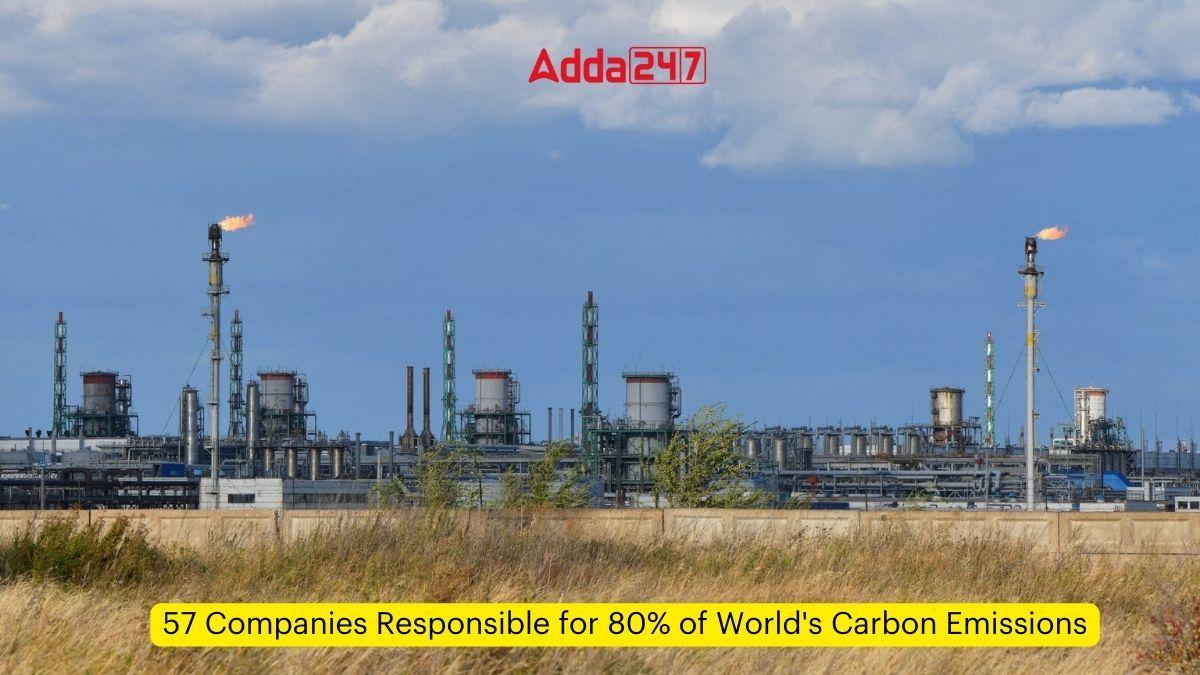According to a report released by the think tank ‘InfluenceMap’, just 57 companies are responsible for 80% of the world’s carbon emissions from fossil fuels and cement over the past seven years. These 57 companies are involved in the production of oil, gas, coal, and cement in the world. The report concludes that the net zero target set under the Paris Climate Change Agreement in 2015 has not been achieved, and fossil fuels have not been able to have a significant impact on production. The production of cement and fossil fuels has reached unprecedented levels, and most of the emissions growth has come from a relatively small number of large companies.
Data Source and Methodology
- The report used the Carbon Majors database for fossil fuel data from the top 122 oil, gas, coal, and cement producers.
- The Carbon Measures database was founded in 2013 by Richard Heed of the Climate Accountability Institute.
Need for Drastic Action
- The lack of progress by these big fossil fuel companies means less progress in reducing the world’s carbon emissions.
- More drastic action is still needed if countries are to meet the Paris Agreement goal of keeping global warming below 2 degrees Celsius.
- The Carbon Measures database stresses accountability for companies and countries on emission reduction progress.
Accountability Framework and Paris-Aligned Pathways
- Researchers from the Universities of Queensland, Oxford, and Princeton crafted an accountability framework that outlines strict, science-based requirements for tracking companies’ progress towards Paris-aligned pathways.
- A related follow-up study applied this framework to the Carbon Measures database and found that between 2014 and 2020, coal, oil, and gas companies produced 64%, 63%, and 70% more than their respective targets.
Role of Government-Owned Companies
- InfluenceMap’s 7-year report attributes emissions growth to government-owned firms, which will have less transparency available compared to investor-owned companies.
- The International Financial Standards Foundation unveiled new climate disclosure standards in 2023, which are expected to provide investors, politicians, and the public with access to more transparent and consistent data, making it easier to assess companies’ climate performance.
The findings of this report highlight the urgent need for more ambitious and coordinated efforts by the world’s largest fossil fuel and cement producers to align their production with the goals of the Paris Agreement and drive meaningful reductions in global carbon emissions.



 Employment Generation In India
Employment Generation In India
 Virat Kohli Tops Celebrity Brand Valuati...
Virat Kohli Tops Celebrity Brand Valuati...
 Virat Kohli Reclaims Top Spot as India's...
Virat Kohli Reclaims Top Spot as India's...
